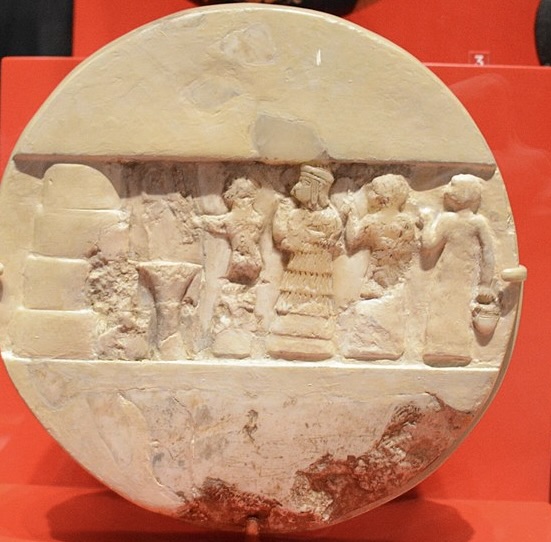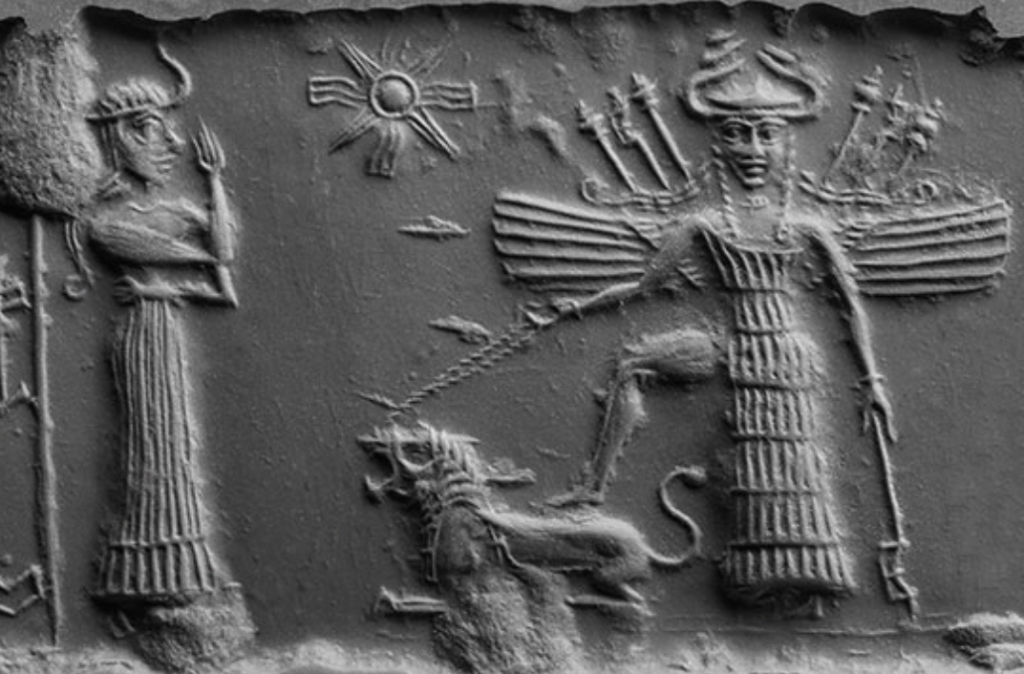A new exhibit at The Morgan Library & Museum highlights the women of Mesopotamia and their roles in religion as goddesses, priestesses, and worshippers as well as in social, economic and political spheres as mothers, workers, and rulers.
One remarkable woman of the period was the priestess and poet Enheduanna (ca. 2300 B.C.)

Not much is known about the early life of Enheduanna. As the daughter of Sargon the Great she was given the best education available. She could read and write in both Sumerian and Akkadian. She was also trained to do mathematical calculations.
Enheduanna’s father, perhaps because of her brilliant and creative genius, appointed her the high priestess at the temple of the moon god, Inanna, in the city of Ur.

As the high priestess in the city of Ur, Enheduanna not only presided over religious festivals and interpreted sacred dreams, but she also supervised construction projects. In this position, she would also have traveled to other cities in the empire.
Enheduanna was also charged with the task of reconciling the gods of the Akkadians with the gods of the Sumerians so that the important city of Ur would acquiesce to Sargon’s rule. Not only did she succeed in that difficult task, but she also established standards of poetry and prayer that would profoundly influence the Hebrew Bible.
In her writing Enheduanna identifies herself and speaks in the first person. She produced a number of timeless epic poems and three famous religious hymns which translate as The Great-Hearted Mistress, The Exaltation of Inanna, and Goddess of the Fearsome Powers, all three powerful hymns to the Mesopotamian goddess Inanna.
While there were previous instances of poems and stories written down, Enheduanna was the first to sign a name to her work. She certainly deserves the honor as the world’s first known poet and first known author.